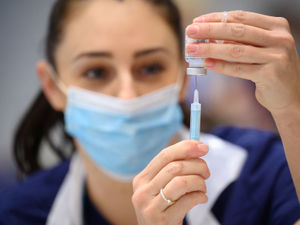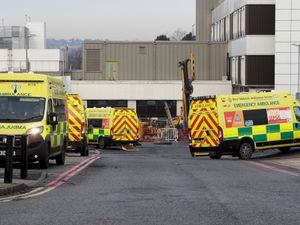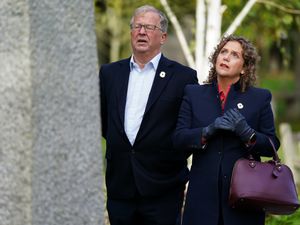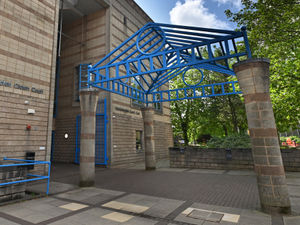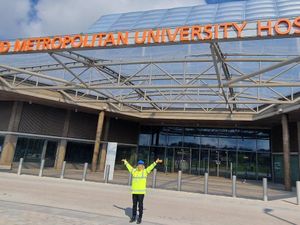‘I was told to contact my family and warned it might be my last ever call’ - now Covid patient helps others
Darren Buttrick was told he might not wake up again after he was placed on a ventilator in intensive care after contracting coronavirus in March.
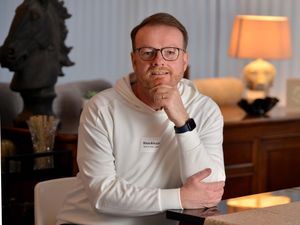
But since making a recovery from the deadly virus, Darren has now donated his blood plasma 14 times to help others who are suffering with Covid-19.
Plasma is being used in clinical trials to determine whether the antibody-rich blood plasma found in people who have had coronavirus – known as convalescent plasma – could be an effective treatment for Covid-19.
The plasma is transfused into patients who are struggling to develop their own immune response. The antibodies could slow or stop the virus spreading, which could save lives.
More Covid-19 coverage:
A new donation centre has recently opened at Carillion House, in Salop Street, Wolverhampton – and donations are urgently needed so that if the trials confirm patient benefit, plasma can be made readily available for general use in the NHS.
Among those who are helping to try and tackle the virus is Darren, from Coven, who was rushed to New Cross Hospital in March after contracting Covid-19.
The 49-year-old was donating plasma at the Wolverhampton centre today for the 15th time – and says he will continue to do so until his body says no.
Father-of-three Darren, who works for O2, started to develop Covid-19 symptoms after returning from a business trip in London. Around two days later, he began to experience symptoms, including a high temperature and shortness of breath – and was initially taken to hospital on Saturday, March 14.
He said: "I started to feel ill, it was just an unwell feeling first. Four days later I was taken to New Cross by ambulance, I had a very high temperature and was struggling to breathe. It wasn't confirmed Covid at the time – I really didn't think I had got it if I am honest, as it was very early in the pandemic.
"I have a feeling I picked it up from London, but I can't be sure. I was in London for three days for work and I came home, then the next day I went to the office in Manchester and when I came home I just didn't feel well. I'll never know where I picked it up from exactly but I think it was London.
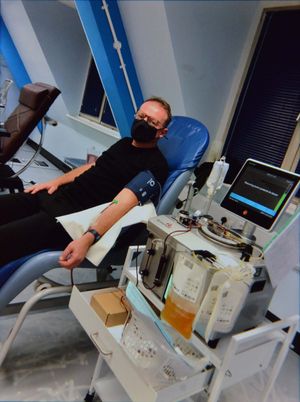
"When I got to hospital they did a Covid test and took me to a ward – they kept me overnight, put me on oxygen and the next day they told me the NHS would call me in a few days to give me my test result. They told me the best thing to do was to go home and isolate as you may not have it, but isolate anyway in case you have. I remember they said it is best to be at home because you don't want to be in hospital at this time in case you haven't got it.
"I came home on the Sunday, then lockdown came in on the Monday. Then on the Tuesday, March 17, I got the phone call to tell me I had Covid-19. I remember watching the news that day and it said they were reporting the first 2,000 cases of coronavirus in the UK – and I thought I'm one of the first 2,000 to have it. I thought I was really unlucky.
"I gradually just got worse and worse that week. I remember talking to my parents, my wife and my work colleagues, and they were telling me I sounded terrible and needed to go back to hospital. I could hardly breathe.
"The Thursday night I went to bed early, I had laboured breathing. My daughter came in and she could hear me panting for breath – and she asked if I was OK. I asked her to go and get her mum, I couldn't open my eyes, I was dreadful. It was like being strangled, like being short-changed of breath. My wife rang 111 that evening. After about three phone calls with nurses and doctors, they said they would send an ambulance.
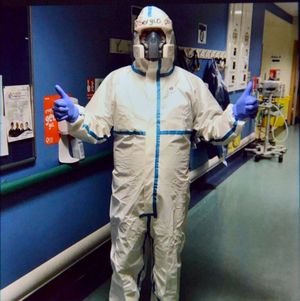
"I was taken into a box room in A&E, all the nurses and doctors were in PPE. They were telling me they were going to give me oxygen – but they were saying I was past that, that my body was starting to shut down. They told me it was going to be intensive care, on a ventilator and in a coma – they said they had no option, and it was the only way to save me now.
"I was told there was still a risk with it as it was an unknown virus. They said you've got 15 minutes now while we prep you to ring your loved ones and tell them, you need to prepare yourself that this could be your last phone call – so whatever you want to say, say it because you are very, very ill. I was crying and begging to them 'Don't let me die'.
"I was thinking, I may never wake up from this – this could be it."
He was then put on a ventilator in intensive care. Five or six days later and he was recovering, but his body didn’t react very well to coming off sedation – meaning he was placed on another ventilator to wake him up gradually.
Darren said: "They took me off the ventilator as my breathing had improved, but I had a really bad reaction to coming off the sedation. In the end, they had to reventilate me – and they lifted the sedation hour by hour so when I woke up I was conscious.
"A nurse was telling me I was OK, I'd survived, I was off the ventilator."
Darren was then moved to another ward where he spent a further two days – before being discharged home. He says it took him a good month to recover afterwards – to get to "feeling about 90 per cent".
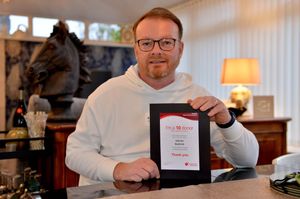
He added "The NHS called me and asked if I would consider donating my plasma. I just said yes. They asked if I could go to Birmingham the next day. That was my first donation.
"On Monday last week, I donated for the 14th time. I have still got my antibodies eight months on, which is really good so I can carry on donating – and will donate on Monday for the 15th time.
"Now you can donate weekly, so for the last four weeks I've been doing it weekly.
"It is very much like donating blood, I'm told. They put a needle into the vein in your arm, basically take the blood out of your body it goes into a machine – where they extract the plasma, which is like a yellow fluid. They then put the blood back into my body. One or two days later, my body will effectively replenish the antibodies.
"For me it was about giving back. The NHS saved me, I know how very ill I was.
"People think if you've got asthma, or a heart problem or a liver problem, you're prone to get it – but I had no underlying health issues, I don't take any tablets, I go to the gym, I'm fit and healthy. But it took over my lungs.
"My official diagnosis was Covid-19 pneumonia serious respiratory failure, that's what my discharge letter said.
"It can happen to anyone – I'm just a normal, middle-aged man, married with three children, fit and healthy, with no underlying health conditions – but it almost took my life.
"Donating my plasma has helped me get over the emotions of having Covid and the bad way I had it – it's helped my emotional recovery. It's the feeling of giving back – and helping others.
"I have now donated 14 times – I have hopefully helped 14 people avoid intensive care, avoid a coma, avoid a ventilator and ultimately avoid death I hope.
“I will keep donating until my body tells me I can’t.”

